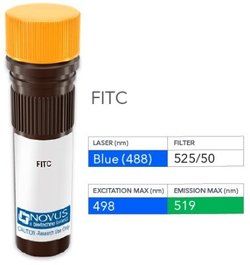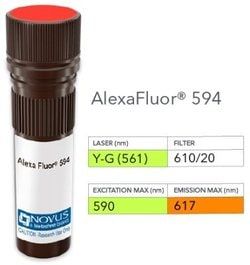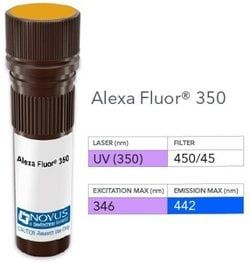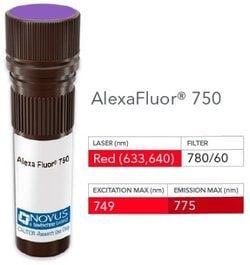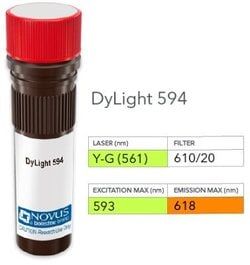Bromodeoxyuridine/BrdU Antibody (BRD494), FITC, Novus Biologicals™
Manufacturer: Novus Biologicals
Select a Size
| Pack Size | SKU | Availability | Price |
|---|---|---|---|
| Each of 1 | NB006165-Each-of-1 | In Stock | ₹ 57,494.00 |
NB006165 - Each of 1
In Stock
Quantity
1
Base Price: ₹ 57,494.00
GST (18%): ₹ 10,348.92
Total Price: ₹ 67,842.92
Antigen
Bromodeoxyuridine/BrdU
Classification
Monoclonal
Conjugate
FITC
Formulation
PBS with 0.05% Sodium Azide
Host Species
Mouse
Purification Method
Protein A or G purified
Regulatory Status
RUO
Test Specificity
It reacts with Bromodeoxyuridine (BrdU) in single stranded DNA (produced by partial denaturation of double stranded DNA), BrdU coupled to a protein carrier, as well as free BrdU. BrdU is a thymidine analog, incorporated into cell nuclei during DNA synthesis prior to mitosis. Antibody to BrdU is helpful in detecting S-phase cells, providing useful information on the aggressiveness of tumors.
Content And Storage
Store at 4°C in the dark.
Applications
Flow Cytometry, Immunohistochemistry, Immunocytochemistry, Immunofluorescence, Immunohistochemistry (Paraffin)
Clone
BRD494
Dilution
Flow Cytometry, Immunohistochemistry, Immunocytochemistry/Immunofluorescence, Immunohistochemistry-Paraffin, Immunohistochemistry-Frozen
Gene Alias
Bromodeoxyuridine, BUdr
Immunogen
Bromodeoxyuridine (BrdU) conjugated to KLH
Quantity
0.1 mL
Primary or Secondary
Primary
Target Species
Non-species specific
Isotype
IgG1 κ
Related Products
Description
- Bromodeoxyuridine/BrdU Monoclonal specifically detects Bromodeoxyuridine/BrdU in Non-species specific samples
- It is validated for Immunohistochemistry, Immunohistochemistry-Paraffin.
